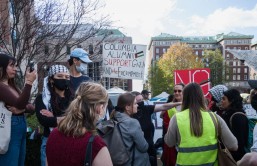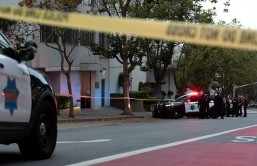Researchers may have found the lost volcano that was responsible for a catastrophic eruption in the 13th century.
The event occurred in 1257 and was so strong that there is still evidence of it etched into the ice of the Arctic and the Antarctic, the BBC reported.
Researchers have been wondering what caused the event for ages, stories of a sudden drop in climate temperature and crop difficulties are recorded in ancient writings but experts were unsure of the disaster's source.
"It's been a long time that some people have been looking," Franck Lavigne, of the Université Paris 1 Panthéon-Sorbonne, told National Geographic.
The Samalas Volcano on Lombok Island, Indonesia is believed to be responsible for the eruption, which was eight times stronger than the notorious Krakatoa explosion in 1883. Researchers had thought the Tambora eruption of 1815 was the strongest explosion, but new evidence suggests this mysterious volcano may have been even more violent.
The original volcano is no longer standing, only a large crater lake remains, the BBC reported.
A research team analyzed sulphur and dust traces in the ice along with ejected volcanic rock and nearby tree-rings.
"The evidence is very strong and compelling," Prof Clive Oppenheimer, from Cambridge University told the BBC.
"We conducted something similar to a criminal investigation," Lavigne told the BBC. "We didn't know the culprit at first, but we had the time of the murder and the fingerprints in the form of the geochemistry in the ice cores, and that allowed us to track down the volcano responsible."
The team determined that the volcano flung debris for about 10 cubic miles and the finer materials may have traveled as far as 25 miles. The magnitude of the explosion would have to have been that large in order to hit Greenland and Antarctic ice.
The summer after the eruption was recorded as exceptionally cold, with flooding and crop failure. A mass grave full of thousands of skeletons was recently dated to be from the year 1258.
"We cannot say for sure these two events are linked but the populations would definitely have been stressed," Lavigne told the BBC.








